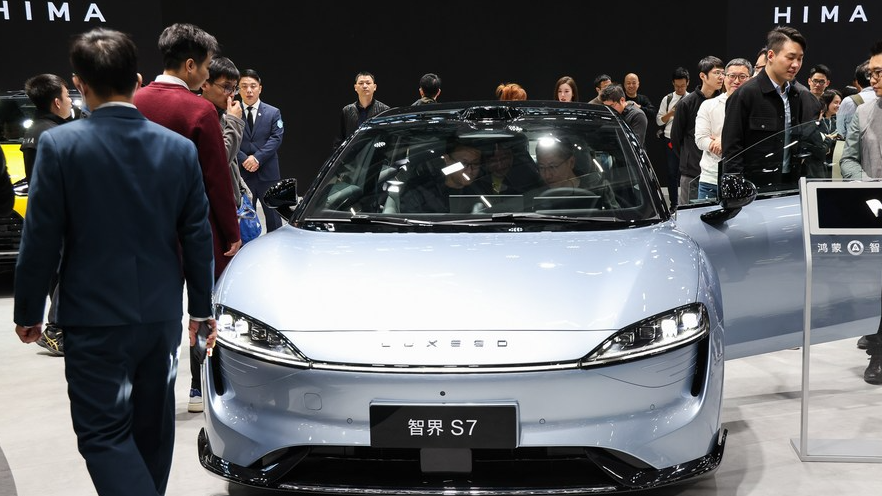
HEFEI - Fierce competition has driven up technological innovation and industrial upgrading in China's new energy vehicle sector, with auto brands revving up investment and seeking cooperation.
"I'm dazzled by the new configurations of NEVs, with large touch screen, voice control, and autopilot system being almost basic features for many," said Zhou Ning, a resident in Hefei, east China's Anhui province, who is considering purchasing the family's second car.
"When there are several options of different car brands within my budget, I feel like I can really take time to choose one that caters best to my needs," he added.
China's auto sales rose 10.6 percent year on year to 6.72 million units in the first quarter of this year, data from the China Association of Automobile Manufacturers showed
As the NEVs claim an ever-growing market share and consumer recognition, Chinese automakers are going all out to improve product performance through enhanced technological input while setting attractive prices for a higher penetration rate. At the same time, authorities in China are working to provide a sound breeding ground for innovative cooperation between domestic and foreign enterprises on the NEV industrial chain.
Tech-intensive
More players are pitching into the NEV sector. China's tech giant Huawei in mid-April made an announcement for a new electric car model Luxeed S7, featuring its self-developed operating system Harmony OS. In late March, Xiaomi, another renowned Chinese tech firm, released its first self-developed NEV model SU7.
NEV makers' fast upgrades in technology has put Chinese consumers in the driver's seat, with high-tech being the supporter of sales growth.
Meanwhile, the recent years have seen closer interactions between automakers and hi-tech companies, with new technologies more frequently applied on NEVs, spurring new consumption growth.
READ MORE: Shenzhen EV players head to Europe
For Xiaomi's SU7, technological breakthroughs in key fields have been achieved, such as modeling design, batteries, intelligent driving and intelligent cockpits, said Lei Jun, founder and CEO of Xiaomi at SU7's launch event.
Aito, an NEV brand jointly developed by Huawei and Chongqing-based automaker Seres, started the delivery of a six-seater sports utility vehicle (SUV) M9 in February this year, featuring a futuristic smart cockpit running on Harmony OS.
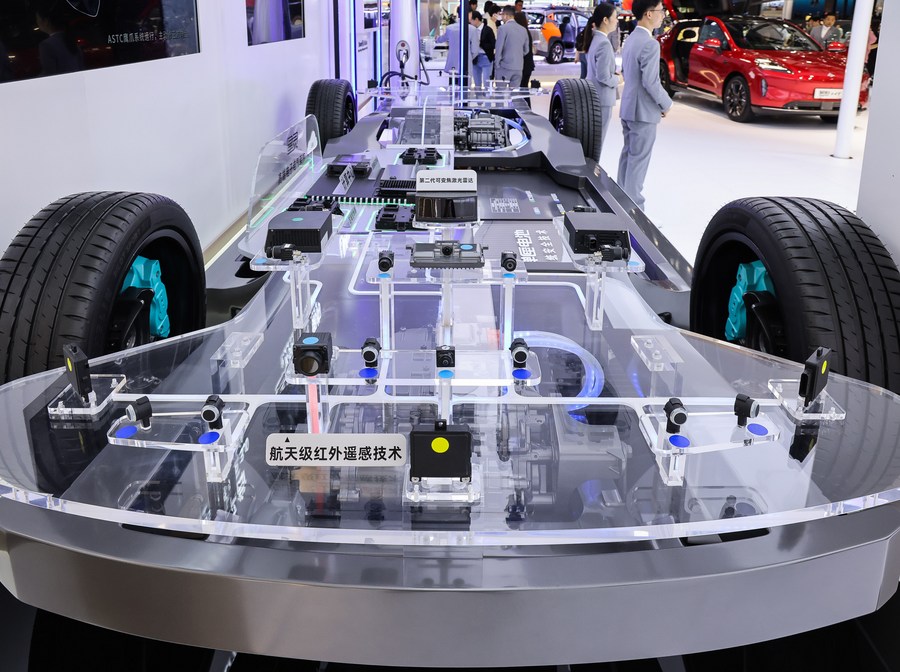
Also not long ago, GAC Group's Aion and Didi, a leading Chinese ride-hailing service provider, announced that their joint venture (JV), Guangzhou Andi Technology Co, Ltd, has secured its business license. This is the first domestic JV in China between an L4 autonomous driving provider and an automotive manufacturer aiming at producing mass-market vehicles for autonomous taxi services.
READ MORE: Tech firms eye big footprint in vrooming NEV sector
Zhang Yongwei, vice chairman and secretary-general of the China EV 100, an NEV industry think tank, said that integrating advantageous elements such as vehicles, roads, networks, computing power and data into systematic engineering is the most effective path to promote the automotive industry into the next level, which is a more intelligently connected ecosystem in China.
Boosted by multiple factors, China's auto sales rose 10.6 percent year on year to 6.72 million units in the first quarter of this year, data from the China Association of Automobile Manufacturers showed.
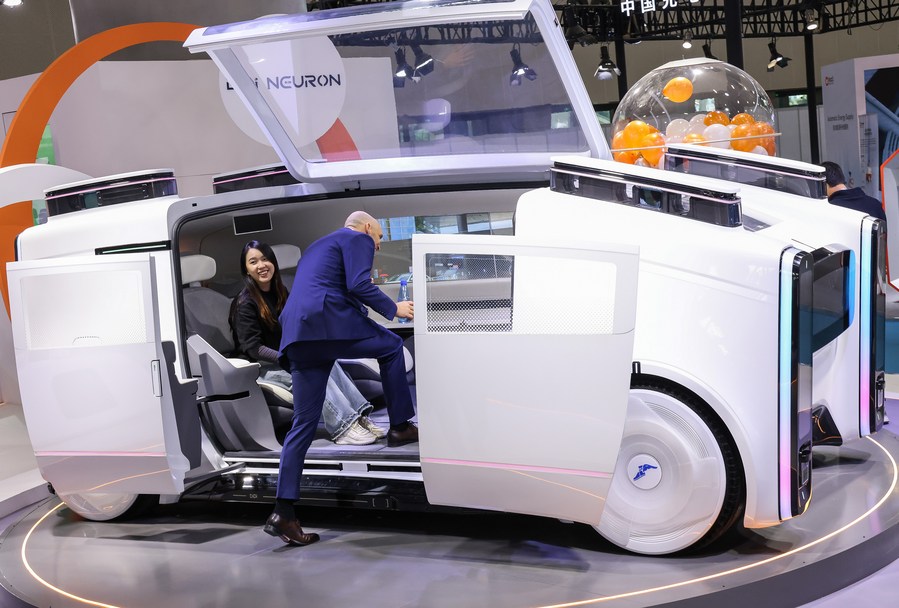
Intense competition
Last year saw a survival battle among Chinese NEV makers, after the withdrawal of financial subsidies for NEVs that had been in place for 13 years.
The racetrack has turned even more crowded this year with traditional automakers, both domestic and overseas, accelerating the electrification process, and tech companies entering the autodrome.
READ MORE: 'Capacity' claims seen as attack on China’s new sectors
In February this year, BYD officially released its new NEV model priced at 79,800 yuan (about $11,238), the lowest for Chinese-made hybrid models, which presented itself as a competitive opponent for fuel cars at the same price level.
SAIC-GM-Wuling, Chang'an, and Neta also downgraded the prices of several models in the same month. Industry insiders expect that the price-reduction strategy would help further raise the penetration rate of NEVs in China, which was logged at nearly 30 percent in 2023.
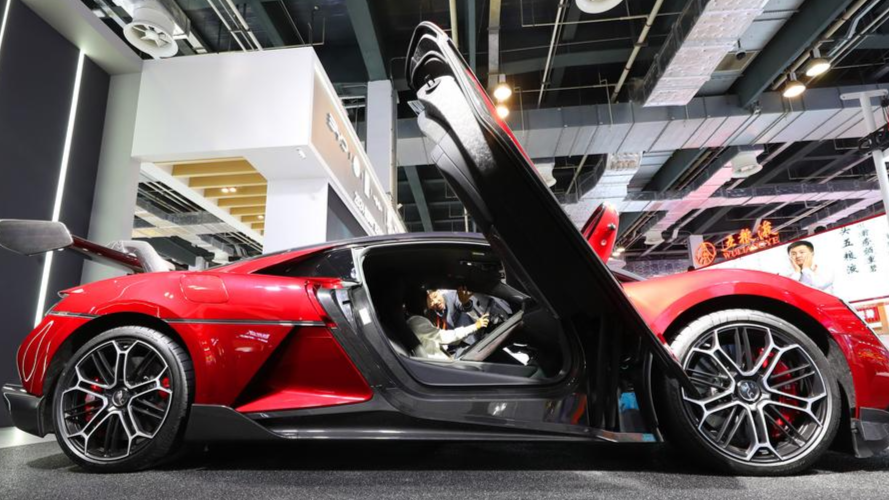
In a bid to boost consumption and trade-in of automobiles, China has released a plan to relax the loan ratios for personal gasoline cars and NEVs.
Wang Qing, vice director of the institute of market economy under the Development Research Center of the State Council, said that the NEV market is expected to continue its relatively rapid growth this year.
READ MORE: Chinese EV maker NIO's 500,000th vehicle rolls off production line
"I believe that by 2025, the market share of NEVs will be close to or even exceed 50 percent. And more consumers will opt for NEVs rather than fossil-fuelled cars," Wang said.
In the past year, except for bulking up in R&D and cutting prices, many Chinese NEV brands invested more in foreign markets for new growth points.
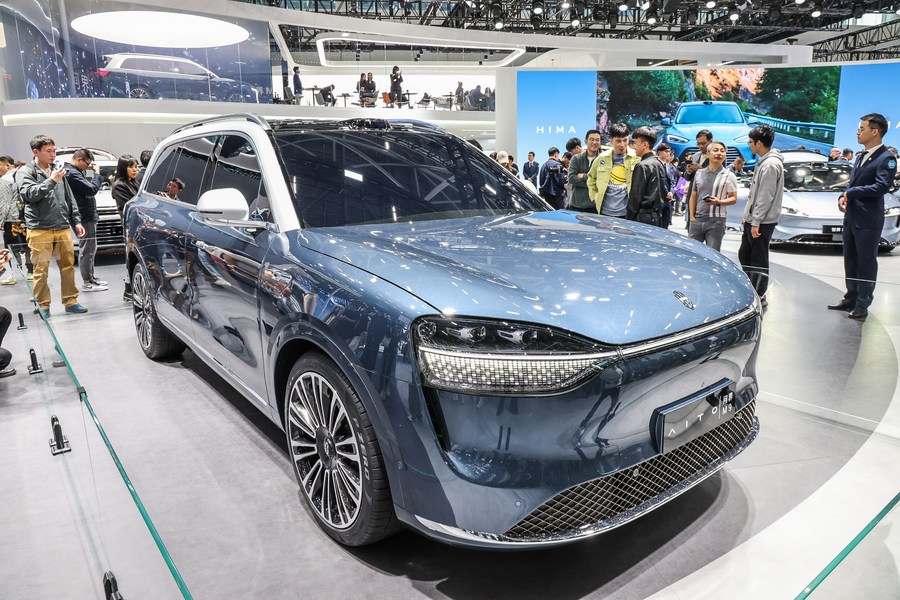
Taking Southeast Asia's largest economy Indonesia as an example, China's SAIC-GM-Wuling, Chery, Neta, and BYD have already sold electric cars and buses there, with some of them planning on building local car-making factories.
A study by the Association of Indonesia Automotive Industries revealed that 66 percent of Indonesian consumers showed positive views toward Chinese car brands.
China's NEVs captured a 62-percent share of the global NEV market in the first two months of this year, according to Cui Dongshu, secretary general of the China Passenger Car Association.
Big cake for all
Amid the global electrification wave, the NEV industrial chain is also turning to be more inter-related and inclusive. China's supportive policies to encourage the development and innovation of the NEV industry have unleashed more market potential and attracted more international investment.
To increase its pace of innovation in China, Volkswagen Group China in April announced that it will invest 2.5 billion euros in the expansion of its innovation hub in Hefei.
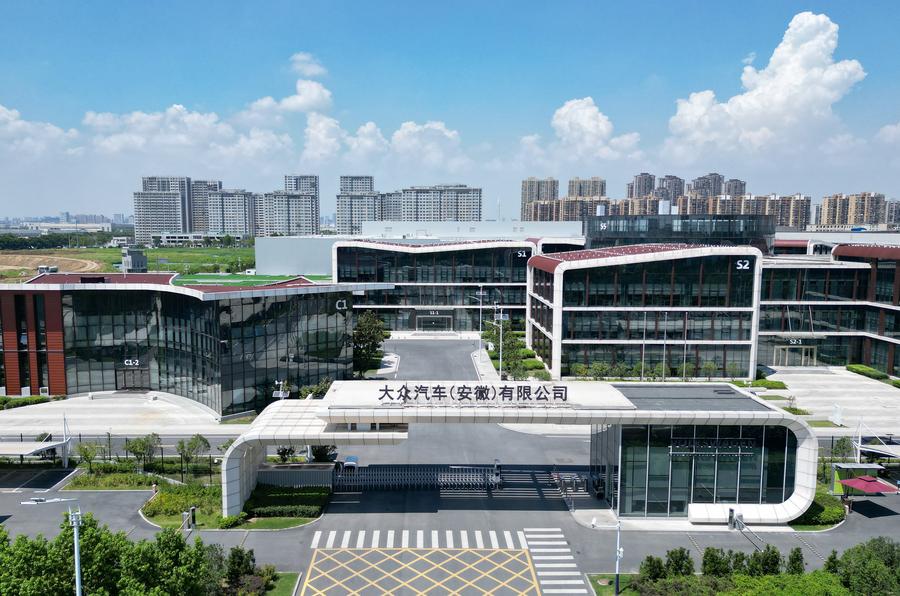
By the end of 2026, the new JV would have set up at least 1,000 supercharging stations equipped with cutting-edge technologies across China, with some 7,000 high-power charging piles
"This additional investment in the site underlines our ambition to quickly expand our local innovative strength," Chairman and CEO of Volkswagen Group China Ralf Brandstätter said, adding that the hub in Hefei will bring technologies to market approximately 30 percent faster in the future.
Japanese tech firm Panasonic also plans to increase investment in south China's Guangdong province, focusing on NEV components and intelligent manufacturing, said Zhao Bingdi, president of Panasonic China.
"We have firsthand experience of the business environment in Guangzhou. Guangzhou is of utmost importance to Panasonic's future business endeavors," Zhao added.
In March this year, a new JV set up by Mercedes-Benz Group China Ltd. and BMW Brilliance Automotive Ltd. was registered in Beijing to support the operation of their supercharging network in the Chinese market.
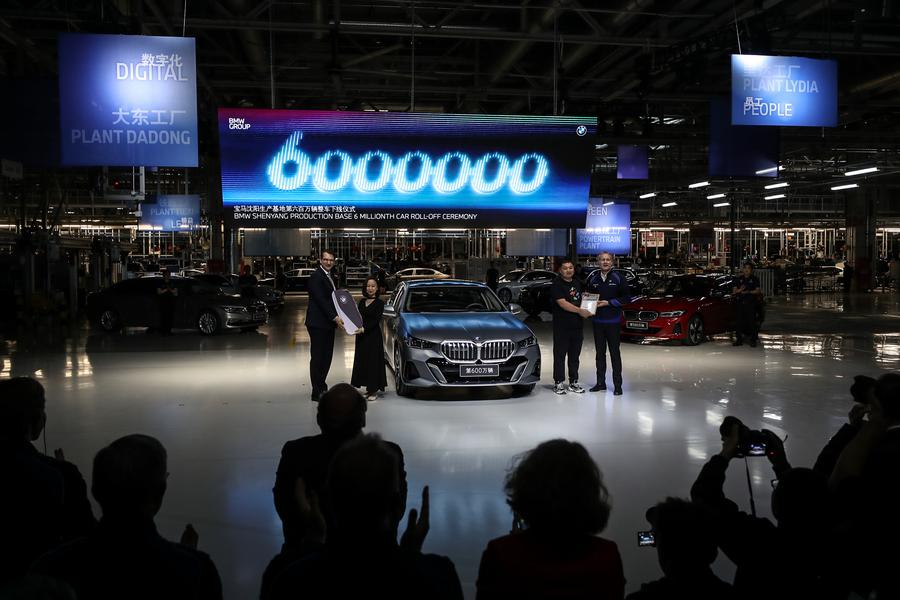
By the end of 2026, the new JV would have set up at least 1,000 supercharging stations equipped with cutting-edge technologies across China, with some 7,000 high-power charging piles.
READ MORE: Brands from across world flex NEV muscle on stage
From car manufacturing to infrastructure, China has sent positive signals, welcoming various industry players to tap the market potential together, and help build a more robust e-mobility ecosystem.
Huang Zilan, a research associate at the Qianhai Institute for International Affairs of the Chinese University of Hong Kong (Shenzhen), said China's efforts to develop green and low-carbon growth drivers are yielding significant results amid the global energy transition.
"It's not just about showcasing the powerful influence of 'Made in China', but also about gaining international recognition for the positive role China plays in promoting the global green economy," said Huang.


